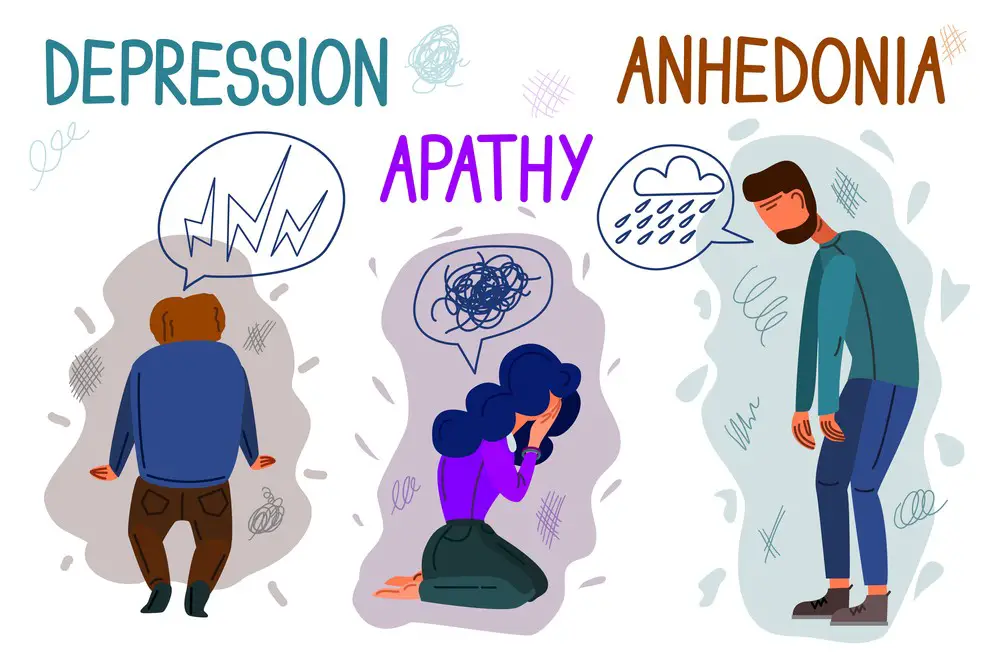As a BetterHelp affiliate, we receive compensation from BetterHelp if you purchase products or services through the links provided
Depression is a mental health condition affecting millions worldwide, causing persistent sadness, hopelessness, and a lack of interest in daily activities. For those who find solace in spirituality and religious practices, psalms have long been a source of comfort and strength. The profound messages within these ancient texts, often attributed to King David, provide insights and guidance for those struggling with depression and its debilitating effects.
Psalms offer emotional support by expressing deep human emotions, including despair, joy, and gratitude. They remind us that we are not alone in our suffering and that a greater power is with us even in the darkest moments. By tapping into the wisdom and reassurance these sacred texts offer, we find a powerful tool in our healing journey through depression.
Key Takeaways
- Psalms comfort those battling depression with their expressions of human emotions and messages of hope.
- The wisdom within these sacred texts serves as a resource for emotional support and guidance.
- Incorporating psalms into daily spiritual practices can contribute to mental health and well-being.
God’s Love: Your Shield Against Depression
Understanding Depression
Depression is a common mental health issue that affects millions of people worldwide. It is a complex condition, with psychological and physiological factors contributing to its onset and persistence.
The symptoms of depression can manifest in various ways, including feelings of sadness, hopelessness, and irritability, as well as changes in sleep patterns, appetite, and energy levels. Recognizing these signs and seeking professional help if they persist for more than two weeks is essential.
Several theories have been proposed to explain the development of depression. One prominent theory is the biopsychosocial model, which suggests that biological, psychological, and social factors interact to produce depression. In this context, disruptions in brain chemistry, maladaptive thought patterns, and stressful life events all contribute to the onset and maintenance of this condition.
Effective treatments for depression include psychotherapy, medication, and lifestyle adjustments. Cognitive-behavioral therapy (CBT) is a well-researched, evidence-based approach to treating depression. It focuses on identifying and modifying the distorted thoughts and maladaptive behaviors contributing to depressive symptoms. Additionally, antidepressant medications, such as selective serotonin reuptake inhibitors (SSRIs), can help rebalance the brain’s neurotransmitters and alleviate symptoms.
In conclusion, understanding depression requires a multifaceted approach considering biological, psychological, and social factors. With appropriate interventions and support, those who struggle with depression can experience significant improvements in their mental health and overall well-being.

Find Christian Compassion for Your Struggles Here
Role of Psalms in Healing
The Psalms have long been recognized for their therapeutic value, providing comfort and solace to those facing difficult times. For individuals struggling with depression, these ancient songs can offer a source of strength and hope.
One key aspect of the Psalms is their ability to speak to various emotions and experiences. Readers can find joy, lament, gratitude, and sorrow in their verses. Individuals can better understand their emotions and learn to process them healthier by engaging with these words.
Psalms can also serve as a gateway to spiritual connection. When external events or inner turmoil lead to disconnection, turning to these sacred texts can help reestablish a sense of connection to a higher power. This spiritual aspect can particularly benefit religiously inclined people, providing them a sense of meaning and purpose during difficult times.
Additionally, the repetitive nature of the Psalms can create a soothing, almost meditative quality that helps to calm the mind. Reciting the verses, either aloud or internally, can act as a form of mindfulness practice, bringing attention back to the present moment and allowing individuals to develop greater resilience in the face of emotional distress.
Finally, the Psalms can be a reminder that others have faced adversity throughout history and emerged stronger, instilling hope in those struggling. As they read the words of individuals who have experienced hardship and gone on to find strength, solace, and even joy, readers will be encouraged to find their path forward through their challenges.
In summary, the Psalms offer a valuable resource for individuals coping with depression by providing an outlet for emotional expression, fostering spiritual connection, encouraging mindful practice, and instilling hope in those struggling with emotional distress. While not a substitute for professional mental health care, the Psalms can complement healing and personal growth.
Seek Christian Guidance, Conquer Your Depression
Relevant Psalms for Depression
Psalm 34: Despair and Deliverance
Psalm 34 offers comfort and assurance for those experiencing despair. The author, David, recounts how God delivered him from his fears and troubles. The verses remind us that God is present and attentive to our struggles.
- “I sought the Lord, and he answered me; he delivered me from all my fears.” (Psalm 34:4)
The psalm encourages trust in God, emphasizing how those who seek the Lord shall lack no good thing. It also highlights the importance of seeking peace, turning from evil, and doing good.
Psalm 42: Spiritual Yearning
Psalm 42 communicates the spiritual longing and yearning for God during the depression. The author portrays the soul as a deer panting for water, emphasizing the need for God’s presence to sustain and strengthen.
- “As the deer pants for the water brooks, so pants my soul for you, O God. My soul thirsts for God, for the living God.” (Psalm 42:1-2)
This psalm reassures hope in God’s unfailing love, even in times of darkness and struggle.
Embrace His Light, Banish Depression Now
Psalm 77: Dark Nights, Bright Dawns
Psalm 77 highlights the importance of remembering God’s past actions during depression and despair. The psalmist recalls how God has been their refuge in the past and praises the Lord for his great works and wonders.
| Psalms 77: Reference | |
|---|---|
| Praise | “Your way, O God, is in the sanctuary; who is so great a God as our God?” (Psalm 77:13) |
| Promise | “I will remember the works of the Lord: surely I will remember Your wonders of old.” (Psalm 77:11) |
The assurance in Psalm 77 is that God’s power and provision extend beyond our present circumstances. He remains the same trustworthy God throughout our lives.
Psalm 143: Prayer for Deliverance
Psalm 143 is a heartfelt prayer for deliverance from depression and overwhelming situations. The psalmist pleads for God’s intervention, compassion, and guidance.
- “Hear my prayer, O Lord, give ear to my supplications: in Your faithfulness answer me, and in Your righteousness.” (Psalm 143:1)
The humility and trust found in Psalm 143 present a model for seeking help in times of distress.
These psalms provide solace, encouragement, and hope for those struggling with depression. The reader can find comfort and reassurance in God’s love, presence, and deliverance by reflecting on these verses.
Find Peace in His Presence: Start Therapy
Practical Application
Integrating Psalms in Daily Routine
Integrating Psalms into one’s daily routine can comfort and heal those struggling with depression. Some helpful tips include:
- Starting the day with a Psalm: Select a favorite Psalm or find one that resonates with the emotions being experienced, and read it first thing in the morning to set the tone for the day
- Setting reminders: Schedule periodic reminders throughout the day to pause and reflect on a chosen Psalm
- Creating a Psalm journal: Write down thoughts or insights from daily Psalm readings, which can help in tracking emotional progress over time

Turn to Faith, Overcome Depression Today
Prayer and Meditation
Prayer and meditation with Psalms can strengthen the connection to one’s spirituality and inner self. It also provides an opportunity to reflect on feelings and emotions. Consider these steps for effective prayer and meditation:
- Find a quiet and comfortable space free from distractions
- Choose a Psalm that speaks to the current emotional state
- Read the Psalm slowly and attentively, absorbing its words and sentiments
- Close your eyes and spend a few minutes in contemplation or silent prayer
- Reflect on the words and relate them to personal experiences and emotions
Find Peace in His Presence: Start Therapy
Joining Support Groups
Support groups can be invaluable in coping with depression. They provide a safe space to share experiences, emotions, and insights with others facing similar challenges. Such groups often incorporate Psalms and other spiritual texts for encouragement and guidance. Explore local community centers, churches, and online resources to find a support group that aligns with your personal beliefs and preferences.
Incorporating Psalms into daily habits, prayer, meditation, and joining support groups can provide comfort, encouragement, and practical tools to help combat depression. Remember, reaching out to mental health professionals for additional guidance and support is crucial during this journey.
Start Your Healing Journey with Faith Today
Testimonies and Personal Experiences
Many people have found solace and comfort in turning to the Psalms during difficult times. One individual shared how they discovered the beauty of Psalm 42 as they grappled with depression and loneliness. The Psalm resonated with their emotions and helped them understand they were not alone in their struggles.
In another testimony, a woman battling postpartum depression was encouraged to read and meditate on Psalm 40. As she read the verses, she felt the words were speaking directly to her heart, reminding her of God’s unwavering faithfulness and love. Over time, her depression began to lift, and she attributed her recovery to the guidance and hope in this Psalm.
Many support groups for people facing depression have incorporated the Psalms into their meetings. They often share their favorite verses, emphasizing that they can find emotional and spiritual support in these ancient texts. For example, Psalm 30:11-12 is frequently mentioned, with its comforting message of God turning mourning into dancing and exchanging despair for joy.
While it is not a substitute for professional help, the Psalms have played an essential role in the lives of countless individuals throughout the centuries, providing them with a source of hope, comfort, and understanding during the depression.
 Find Christian Compassion for Your Struggles Here
Find Christian Compassion for Your Struggles Here
Conclusion
Psalms have long been a source of comfort and guidance for those struggling with depression. Their timeless messages of hope, reassurance, and strength can provide a sense of solace in difficult times. These powerful verses can serve as a means of emotional healing and spiritual growth.
It is important to remember that each person’s experience with depression is unique, and how psalms resonate with an individual may vary. However, their universal themes can often serve as a common thread for those seeking support and understanding.
Incorporating these profound verses into daily life can create a sense of connection with a higher power and foster inner peace. The transformative power of these ancient lyrics can offer a helpful tool in the continuing battle against depression. Ultimately, these words of wisdom can provide an enduring light source in darkness.
Frequently Asked Questions

Turn to Faith, Overcome Depression Today
What Psalms provide comfort during depressive episodes?
There are several Psalms that can provide comfort during depressive episodes. Most commonly mentioned include Psalm 23, Psalm 30, Psalm 34, Psalm 40, Psalm 42, and Psalm 146. These Psalms offer hope, reassurance, and God’s presence throughout difficult times.
Which Psalms specifically address mental health struggles?
While none of the Psalms were written specifically about mental health, many contain messages that can resonate with those experiencing mental health struggles. Psalms such as Psalm 13, Psalm 42, Psalm 46, and Psalm 143 depict feelings of anguish, despair, and the longing for God’s assistance, which can be powerful when dealing with mental health issues.
How can Psalm 27 help with depression?
Psalm 27 is a powerful source of inspiration and hope in depression. It speaks of God’s everlasting love and protection, which can provide comfort and encouragement during dark moments. By meditating on this Psalm, individuals may find strength in its message and relief from their depressive symptoms.
What are the most powerful Psalms to read when feeling down?
The most powerful Psalms to read when feeling down will vary for each individual, as different passages may resonate more deeply with each person. However, some commonly found comforting and uplifting Psalms include Psalm 23, Psalm 27, Psalm 34, Psalm 46, Psalm 91, and Psalm 121. These Psalms offer themes of faith, hope, and reassurance.
Which Psalms should I pray for overcoming sadness?
To overcome sadness, individuals can pray and meditate on several Psalms that offer comfort and hope. Some suggestions include Psalm 30, Psalm 34, Psalm 42, Psalm 126, and Psalm 147. These passages celebrate God’s ability to heal, restore, and bring joy in times of sorrow.
How can reading Psalms alleviate feelings of despair?
Reading Psalms can provide comfort, reassurance, and encouragement during despair. Many Psalms are heartfelt expressions of the human experience, making it possible for individuals to relate to the emotions expressed within the passages. By engaging with the Psalms, readers may develop a deeper connection to their faith, find solace in the messages of hope, and experience healing through God’s presence.
Seek Spiritual Solace, Begin Therapy Here
Book Of Psalms
As someone who has struggled with depression while navigating a difficult custody battle with a narcissistic ex-partner, I know how important it is to seek different tools and resources to manage mental health challenges. While I take Lexapro to manage my symptoms, I also draw on my religious upbringing to help me find strength and comfort during difficult times.
Growing up in a religious Jewish household, I learned about the power of Psalms in providing comfort and solace in times of distress. I rely on my spiritual connection to God during my long walks to help me find peace and clarity in difficult circumstances.
Despite my ex-partner’s severe narcissism and her complete alienation from our children, I remain committed to fighting for their well-being and managing my mental health.
To provide support and guidance to others who may be facing similar challenges, I write articles about mental health and narcissism. I hope to inspire others to seek different tools and resources for managing their mental health challenges, whether through therapy, medication, or spiritual practices like reciting the Psalms. Anyone can overcome their mental health issues with the right support and resources.
- Breaking the Silence: Why Men’s Mental Health Matters More Than Ever - April 15, 2025
- How to Transform a Home’s Patio Space into a Relaxing Space - March 23, 2025
- 5 Strategies to Use a Cell Phone to Help Manage Your Stress - March 23, 2025
This site contains affiliate links to products. We will receive a commission for purchases made through these links.




.png)





